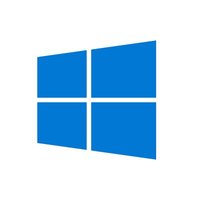Need advice about which tool to choose?Ask the StackShare community!
Linux vs Windows 10: What are the differences?
Linux: A family of free and open source software operating systems based on the Linux kernel. A clone of the operating system Unix, written from scratch by Linus Torvalds with assistance from a loosely-knit team of hackers across the Net. It aims towards POSIX and Single UNIX Specification compliance; Windows 10: The most secure Windows ever built. It is the latest iteration of the Microsoft operating systems and has been optimized for home PC performance in a wide variety of applications from serious work to after-hours gaming.
Linux and Windows 10 belong to "Operating Systems" category of the tech stack.
Some of the features offered by Linux are:
- Portable(Multiplatform)
- Multitasking
- Multi User
On the other hand, Windows 10 provides the following key features:
- Security
- Fast
- Efficient
According to the StackShare community, Linux has a broader approval, being mentioned in 25 company stacks & 126 developers stacks; compared to Windows 10, which is listed in 8 company stacks and 11 developer stacks.
Ubuntu is much more faster over Windows and helps to get software and other utilities easier and within a short span of time compared to Windows.
Ubuntu helps to get robustness and resiliency over Windows. Ubuntu runs faster than Windows on every computer that I have ever tested. LibreOffice (Ubuntu's default office suite) runs much faster than Microsoft Office on every computer that I have ever tested.
I liked manjaro a lot, the huge support it has and the variety of tools it provides is just awesome. But due to its parent platform being Arch Linux it has bleeding-edge technology and that meaning, we get updated 'daily', and if we keep updating the system daily, due to the bugs in the recent updates the system sometimes used to crash, this made the OS really unstable. However, one can avoid such crashes using periodical and careful system/package updates. I now use LinuxMint which is based on Ubuntu, and this OS is completely stable with reliable(mostly tested) updates. And, since this OS is backed up by UBUNTU the concerns/questions one can encounter while using the OS can be easily rectified using the UBUNTU community, which is pretty good. Though this is backed up on UBUNTU it most certainly does NOT include the proprietary stuff of UBUNTU, which is on the bright side of the OS. That's it! Happy Computing.
Netdata introduces Linux eBPF (Extended Berkeley Packet Filter) monitoring. With this enabled, monitor real-time metrics of Linux kernel functions and actions from the very same monitoring and troubleshooting dashboard used for watching entire systems, or even entire infrastructures.
This collector uses eBPF to monitor system calls inside your operating system’s kernel. For now, the main goal of this plugin is to monitor IO and process management on the host where it is running.
If you have a file (demo.txt) that has 3 columns:
Column-1 Column-2 Column-3
Row-1a Row-2a Row-3a
Row-1b Row-2b Row-3b
Row-1c Row-2c Row-3c
Row-1d Row-2d Row-3d
Row-1e Row-2e Row-3e
and you want to only view the first column of the file in your CLI, run the following:
awk {'print $1'} demo.txt
Column-1
Row-1a
Row-1b
Row-1c
Row-1d
Row-1e
If you want to print the second column of demo.txt, just replace $1 with $2
Pros of Linux
- Open Source17
- Free11
- Reliability8
- Safe5
Pros of Windows 10
- On 4gb other applications less likely to run smoothly3
- Slow3
- Best for Indonesian PC Users2
- The best developer tools for all devices2
- Editors choice. But not suitable on 4gb ram. Alth1
- Complies with JIS Standard1
- Great is if you have 8b ram and a 128gb ssd minimum1
Sign up to add or upvote prosMake informed product decisions
Cons of Linux
Cons of Windows 10
- Lags really much on low end devices3
- Slow, slow and slow3
- Worst OS to run on 2GB of RAM2
- Acts posh1
- Can't fix bugs yourself1


















































